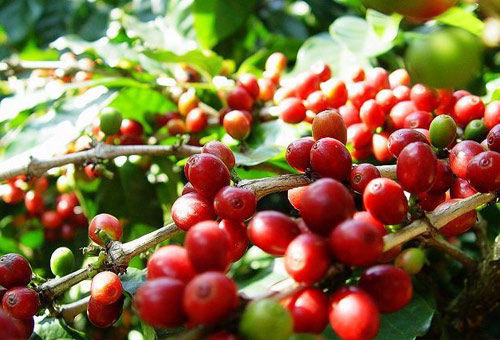Colombia Huilan producing area Vera Plateau yellow bourbon high quality fine coffee beans
The history of Colombian coffee dates back to 1808. A priest brought coffee to Colombia for the first time from the French Antilles via Venezuela. The suitable climate in Colombia provides a real "natural pasture" for coffee. Since then, coffee trees have taken root in this country. The country has also become the second largest coffee producer after Brazil, the world's largest exporter of Arabica coffee beans and the world's largest exporter of washed coffee beans. Colombian coffee is a representative and excellent variety of Arabica coffee, and it is also a traditional deep-roasted coffee with a strong and memorable taste. Its aroma is rich and thick, with clear high-quality acidity, high balance, sometimes nutty, lingering aftertaste, both in terms of appearance and quality, Colombian coffee is the best. Like a charming and unrestrained woman, just right.

Colombian coffee has a balanced flavor and a smooth taste, just like a gentleman in coffee. He has a wide range of producing areas, such as Medellin, Armenia and Manizales, which are commonly referred to as "MAM".

Colombia's boutique bean producing areas are mainly in the south, more than 1500 meters above sea level, including San Augustin, Huila in Huilan province, Popayan, Cauca in Cauca province, Nari ñ o province, and Tolima province, all of which have delicate sour and raspberry aromas, caramel aromas and full sweetness.
Bourbon species, native to Bourbon Island in the Indian Ocean (now known as Reunion Island), is the second species caused by Typica mutation. It belongs to the oldest existing coffee variety. The green fruit appears bright red when ripe, while the yellow bourbon species is derived from the cross between bourbon species and other varieties. Because of its low yield and relatively intolerant to wind and rain, it has not been widely planted. However, when planted in high altitude areas, it will have excellent flavor performance, which is more common in recent years.

During the processing of this coffee, the peeled fruit is placed in a special fermentation tank without water at all, allowing natural microorganisms and fungi to decompose the sugar and alcohol attached to the solid mucus of the fruit for 24 hours. Special four-stage washing method, 4 times washing process, can achieve complete removal of pulp, and then dry with a machine. Raw bean products are not only stable, but also show more sour and sweet feelings.
Important Notice :
前街咖啡 FrontStreet Coffee has moved to new addredd:
FrontStreet Coffee Address: 315,Donghua East Road,GuangZhou
Tel:020 38364473
- Prev

El Salvador Ataisi Manor El Salvador mellow Coffee
El Salvador is located in Central America, bordered by Guatemala and Honduras in the north, and the Pacific coastline in the west and south. El Salvador is the smallest country in Central America and the most densely populated country in Central America. Although the territory of El Salvador is small, it has dozens of volcanoes. It is the country with the highest density of volcanoes in the world, so it is called the country of volcanoes. Full
- Next

Boutique coffee Guatemala coffee manor Guatemala coffee producing area hand brewed coffee
The extra-hard coffee beans here are full-grained, delicious and balanced, and the coffee made with them is pure and rich. Guatemala coffee once enjoyed a reputation as the best quality coffee in the world, but its quality also declined for a time. What is gratifying, however, is that its reputation is gradually being restored. In 1750, Father Jesuit introduced coffee trees to Guatemala, at the end of the 19th century.
Related
- Does Rose Summer choose Blue, Green or Red? Detailed explanation of Rose Summer Coffee plots and Classification in Panamanian Jade Manor
- What is the difference between the origin, producing area, processing plant, cooperative and manor of coffee beans?
- How fine does the espresso powder fit? how to grind the espresso?
- Sca coffee roasting degree color card coffee roasting degree 8 roasting color values what do you mean?
- The practice of lattes: how to make lattes at home
- Introduction to Indonesian Fine Coffee beans-- Java Coffee producing area of Indonesian Arabica Coffee
- How much will the flavor of light and medium roasted rose summer be expressed? What baking level is rose summer suitable for?
- Introduction to the characteristics of washing, sun-drying or wet-planing coffee commonly used in Mantenin, Indonesia
- Price characteristics of Arabica Coffee Bean Starbucks introduction to Manning Coffee Bean Taste producing area Variety Manor
- What is the authentic Yega flavor? What are the flavor characteristics of the really excellent Yejasuffi coffee beans?

